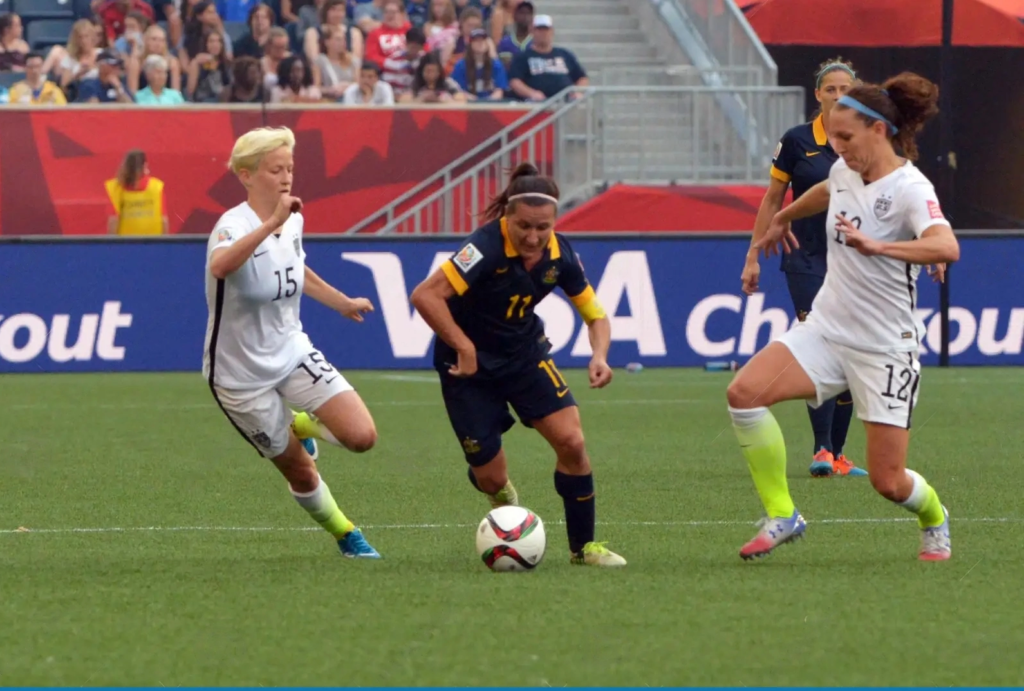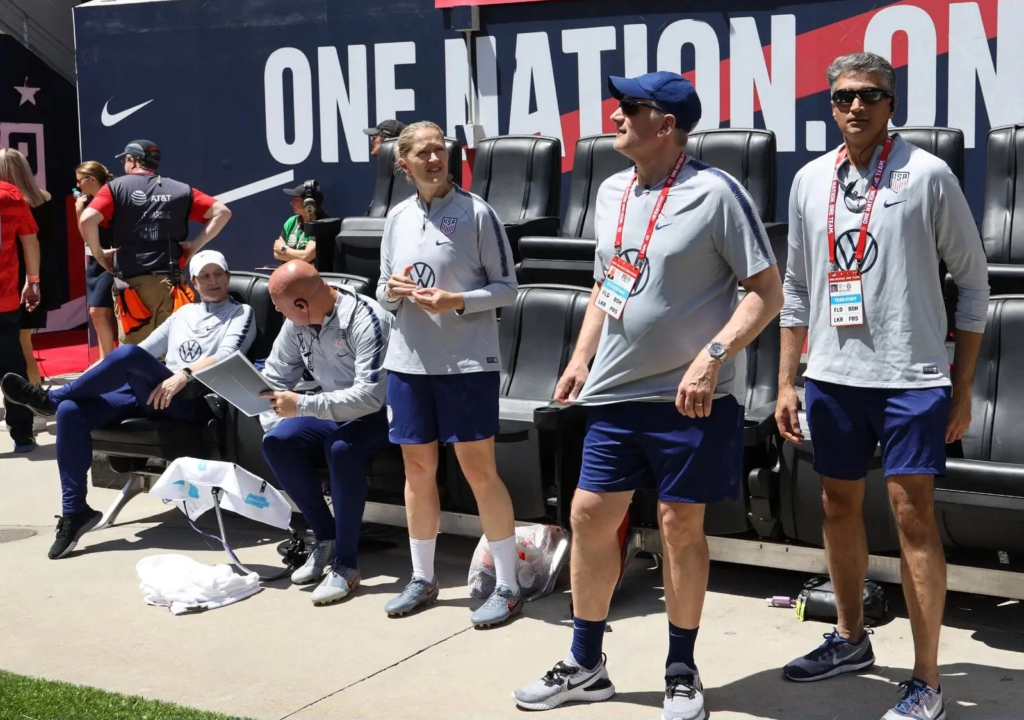
Women’s football has experienced a remarkable rise in popularity and recognition in recent years. With more young women actively participating in the sport and achieving remarkable feats, women’s football has evolved into a powerful platform for empowerment. This article delves into the transformative journey of women’s football, highlighting its growth, the challenges faced, and the empowering impact it has had on young women footballers worldwide. Join us as we explore the vibrant and inspiring world of women’s football.
The Historical Context of Women’s Football
Women’s involvement in football can be traced back to the late 19th century when the sport gained traction globally. However, due to societal norms and prejudices, women faced significant barriers to participation and recognition. It wasn’t until the early 20th century that organized women’s football began to emerge, showcasing the passion and talent of female players.
In recent decades, women’s football has made significant strides in breaking down barriers. With the establishment of dedicated women’s leagues and international competitions, the sport has gained visibility and acceptance. Major advancements, such as the inclusion of women’s football in the Olympic Games and the FIFA Women’s World Cup, have played pivotal roles in promoting gender equality within the sport.
Global Recognition, Shattering Stereotypes and Investments
The rise of women’s football has been accompanied by increased global recognition and investment. National football associations, sports organizations, and major brands are investing in women’s football infrastructure. Their focus is on developing talent and promoting inclusivity. This investment has led to improvements in the overall quality of the sport. Young women footballers now have exciting opportunities to pursue their dreams.
The emergence of inspiring role models in women’s football has shattered stereotypes. It has provided young women with relatable figures to look up to. Pioneering players who have excelled on the international stage have become ambassadors for the sports. It has encouraged young girls to embrace their passion for football and pursue excellence.

Despite the progress made, women’s football continues to face challenges regarding gender equality. Issues such as unequal pay, limited media coverage, and gender bias persist. However, these challenges have galvanized the community, prompting powerful movements and initiatives that strive for equal opportunities and recognition.
Women’s football serves as a powerful tool for empowering young women. By participating in the sport, they develop valuable skills such as teamwork, discipline, and resilience. The camaraderie and sense of belonging fostered within football teams provide young women with a supportive network that extends beyond the pitch, empowering them to overcome obstacles and thrive in all aspects of their lives.
The rise of women’s football has had a profound impact on society. It has challenged traditional gender roles and shattered societal norms, encouraging young women to pursue their passions fearlessly. The sport has become a symbol of strength, determination, and empowerment, inspiring not only young women but also the broader community to embrace gender equality and inclusivity.
Women’s Football Leagues, Tournaments, Branding Opportunities
The establishment of dedicated women’s football leagues and tournaments has provided a platform for young women footballers to showcase their skills and compete at the highest level. Leagues such as the National Women’s Soccer League (NWSL) in the United States, the Women’s Super League (WSL) in England, and the UEFA Women’s Champions League in Europe have elevated the standard of women’s football and garnered significant attention from fans and sponsors alike.

As it continues to grow, there are increasing avenues for professional development. From youth academies to scouting programs, young women footballers now have structured pathways to hone their skills and progress in their careers. This provides them with the opportunity to compete at elite levels, represent their countries, and even secure professional contracts, ultimately realizing their dreams of becoming professional footballers.
With the rise in popularity of women’s football, brands and sponsors have recognized the immense potential for partnerships and collaborations. This has resulted in increased sponsorship deals, endorsements, and marketing campaigns targeted specifically towards women’s football. Such opportunities not only provide financial support but also raise the profile of women in football and amplify its message of empowerment.

Coaching, Mentorship, and the Future in Women’s Football
Coaching and mentorship play crucial roles in nurturing young talent and guiding them towards success. As the interest in women’s football grows, there is a greater demand for qualified coaches and mentors who can provide the necessary guidance and support. Initiatives aimed at training and developing female coaches have gained momentum, ensuring that young women footballers have access to mentors who understand their unique experiences and challenges.

The future is incredibly bright. The increasing visibility, investment, and support for the sport are propelling it towards further growth and success. As more young women embrace football and aspire to be professional players, the sport will continue to empower and inspire generations to come, fostering a more inclusive and equal sporting landscape.
The Importance of Equal Representation in Sports Media, Building Supportive Communities
Equal representation in sports media is crucial for the continued growth and recognition of women’s football. By increasing the visibility of women’s matches, featuring female footballers in media coverage, and providing insightful analysis and commentary, sports media can contribute to dismantling gender biases and stereotypes. The achievements and stories of women in football must be given the same platform as men’s football, allowing young women to see themselves reflected in the sports they love.

Supportive communities play a vital role in nurturing young women footballers and fostering a positive environment for their growth. Communities create safe spaces for young women in football. Grassroots programs are organized to empower their participation and promote inclusivity. These initiatives aim to eliminate judgment and discrimination, fostering an environment where young women can freely pursue their passion for football. Within these supportive networks, they have the opportunity to develop their skills, form lasting friendships, and gain the confidence necessary to excel not only on the field but also in various aspects of their lives.
Conclusion
The rise of women in football is an inspiring journey of empowerment, breaking barriers, and challenging societal norms. Young women footballers are making their mark on the sport, inspiring others to pursue their dreams and embrace their own power. Their passion and talent serve as symbols of strength, resilience, and equality, transcending the boundaries of the game. This impact extends beyond football, leaving a lasting impression on society as a whole.
FAQs (Frequently Asked Questions)
Question : – Is women’s football as popular as men’s football?
Answer : – Women’s football is rapidly gaining popularity and recognition, but it is still in the process of catching up to the level of men’s football. However, with the increased support and investment, and is on a trajectory towards greater equality and visibility.
Question : – Are there professional opportunities for women in football?
Answer : – Yes, there are professional opportunities for women in football. With the establishment of dedicated leagues, international competitions, and increased sponsorship, young women footballers now have pathways to pursue professional careers in the sport.
Question : – How does women’s football empower young women?
Answer : – One can empower young women by providing them with a platform to showcase their skills. Also by fostering valuable life skills such as teamwork and resilience, and challenging societal norms regarding gender roles.
Question : – How can I support women’s football?
Answer : – You can support by attending matches, following women’s leagues and tournaments, advocating for equal media coverage, and supporting brands and organizations that invest in women’s soccer.
Question : – Where can I find resources to get involved in women’s football?
Answer : – There are various resources available to get involved, including local clubs, community programs, and national football associations. You can also seek guidance from established players, coaches, and mentors within the women’s football community.
